I am continuing on my path towards memelordship with a few language memes. Language learning is a hobby of mine, so I tried to create a few memes related to language and language learning.
I may update this post with relevant memes on language, philology etymology and other related topics.
More than learning new languages
Fundamentally, the spoken languages are used for communication. However, I see the act of learning a new language as part of a larger learning experience. And that larger learning experience includes learning about new cultures and gaining new perspectives about life, history, geography, economy, politics and other important topics.
Learning new languages probably also helps develop new thinking patterns. This is because languages may have different phonetics, spelling rules, alphabets, grammar etc. Learning new languages may force you to see things in a new light.
Ancient Languages
Until 19th century, Latin used to be the language of government , theology and higher learning in many Western countries. Ancient Greek was also taught in universities.
In other parts of the world, languages with similar prestige to Latin and Ancient Greek were Church Slavonic, Sanskrit, Ancient Hebrew, Classical Arabic and Classical Chinese.
You and thou
To learn about the connection between the pronouns “you”, “thou” and the Old English ” þu” see this Wiktionary page.
Alphabet vs Abjad Vs Logographic system
Abjad refers to the alphabet systems the Semitic languages have. I studied a bit the Hebrew and the Arabic alphabets and I may try to master them in the future.
I believe that the Chinese and Japanese languages are the only modern languages that use a logographic system. Of course, the Japanese Kanji is derived from the Chinese traditional characters or hanzi. I superficially studied the Chinese characters to get a general idea how the Chinese writing works.
Definite Articles
English, Italian, French and Spanish are languages that place the definite article “the” (“il”, “la”, “les” etc) before the nouns. Romanian, Bulgarian and Albanian are languages that place the definite article as a suffix at the end of the noun.
Latin and Russian don’t have definite articles at all. When I found that Latin doesn’t have definite articles I thought that it was weird. Later I found that Russian also doesn’t have definite articles. Right now I am a bit more comfortable with the idea of not having definite articles, but I still think is weird.
Romanian Alphabets
Since the late 19th century, the Romanian language switched to a Latin Alphabet that has 31 letters. In the Republic of Moldova they used the Moldovan Cyrillic during the Soviet period and I think that the Moldovan Cyrillic is still used in Transnistria.
The Old Romanian Cyrillic that was used before the 20th century was more complicated than the Moldovan Cyrillic. The Old Romanian Cyrillic had more than 40 letters. You can see more details on the Wikipedia page.
Language and Thought
For this meme I used a quote from “Politics and the English Language” by George Orwell. A lot of things changed since George Orwell wrote the essay, and I would say that most changes pushed towards more corruption of thought and language.
I wrote a post about the power of speech that is somewhat related to the meme. The relationship between thought and language was explored further by Orwell in his novel “1984”.

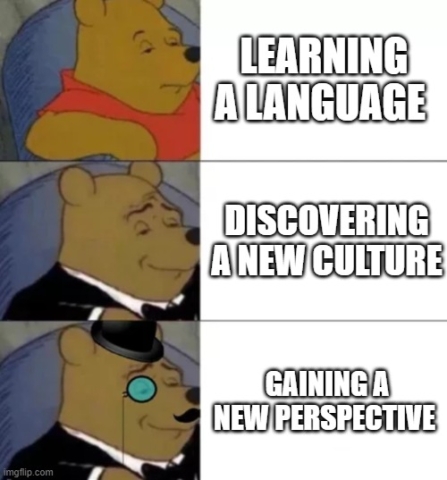
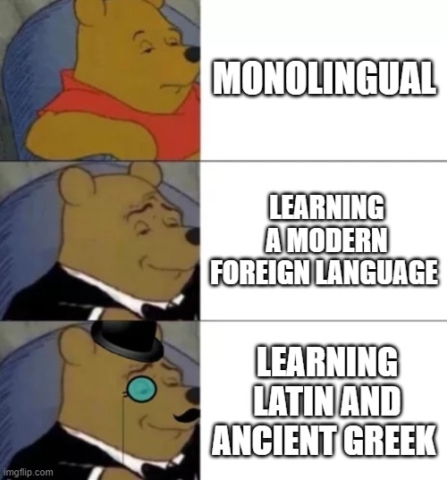
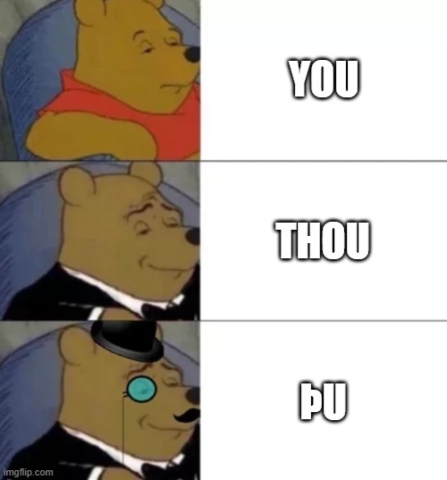
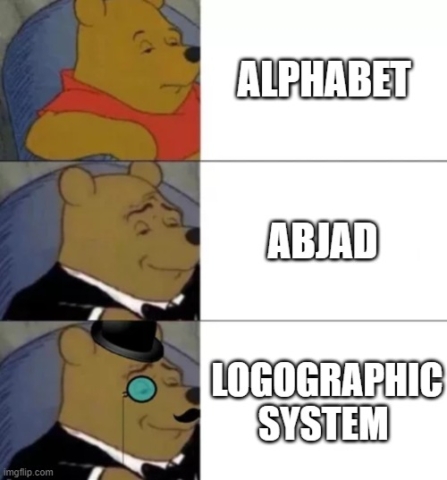
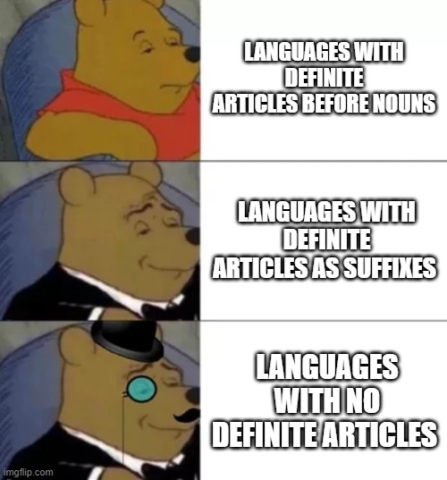
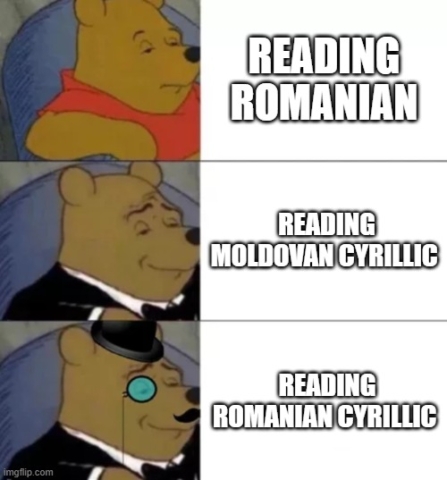
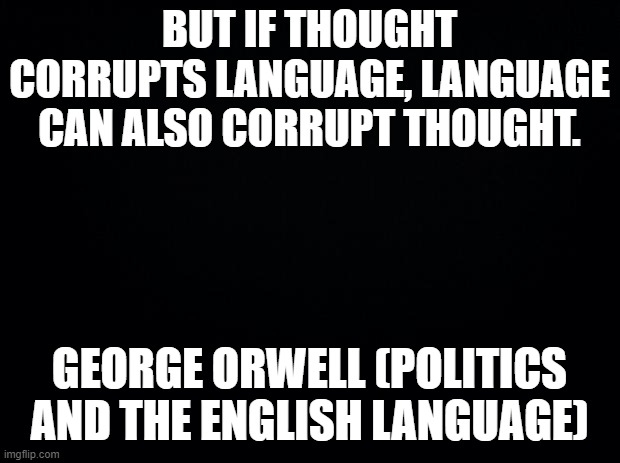
1 comment